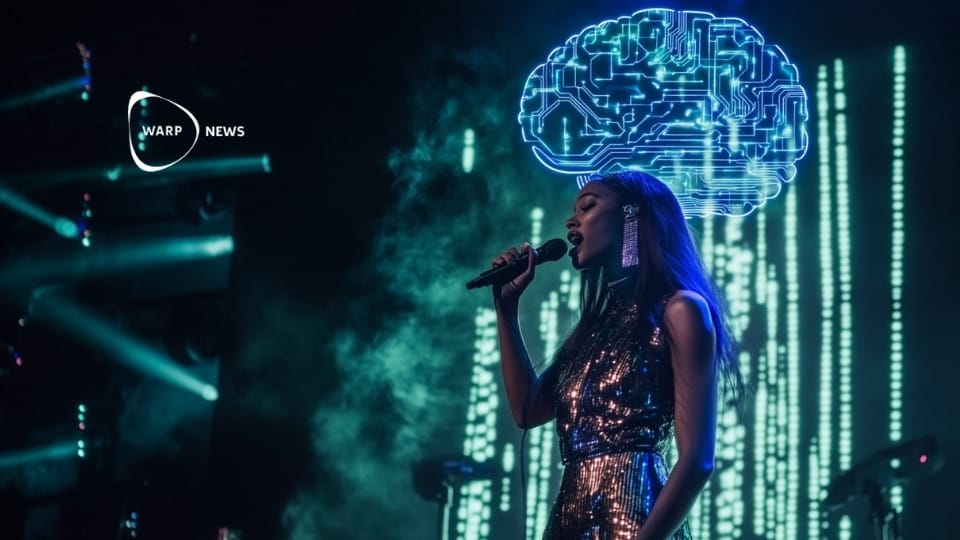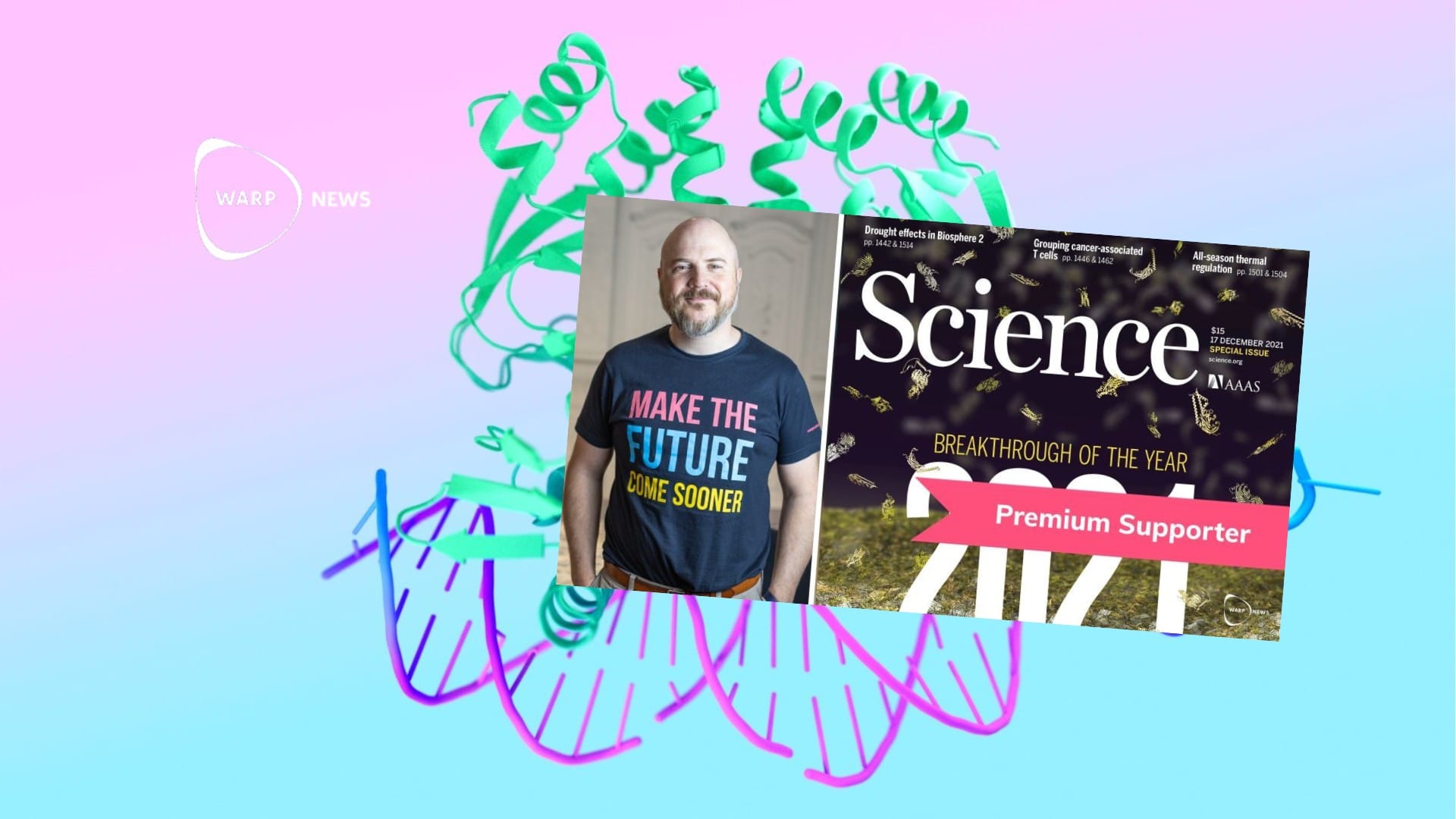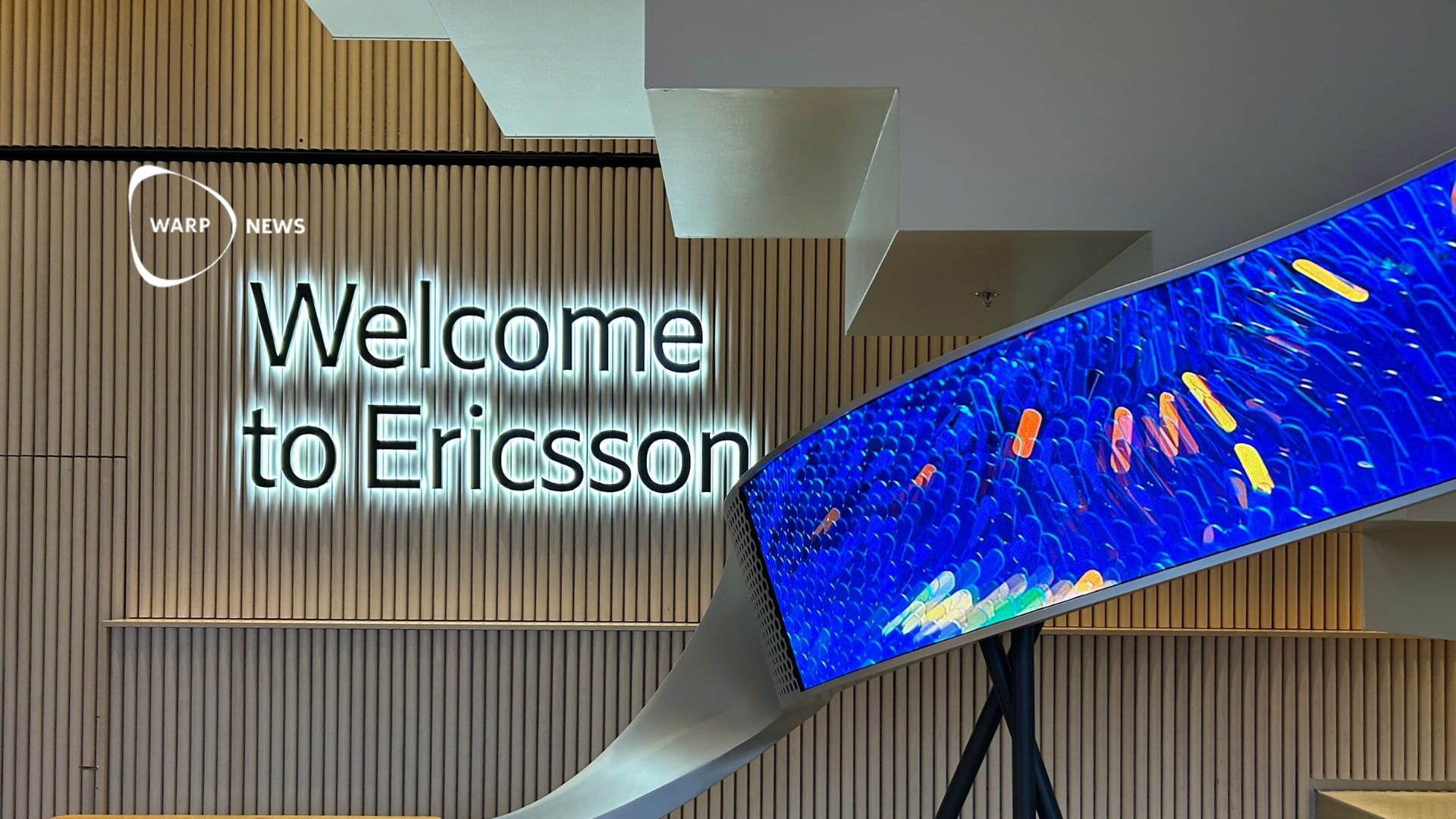
🦾 Boosting AI usage - report from the first meeting of the AI Commission
What should we focus on to take the lead in the AI era? That's what we discussed at the meeting with the AI Commission. My focus is to quickly increase usage. That was the success of the 90s with the internet and will be the same with AI. And I have an idea of how.
Share this story!
My aim is for you to be able to follow the work of the Swedish AI Commission and I very much welcome ideas and input. I will not disclose what is said in the meetings, as members must be able to speak freely and think out loud without it "ending up in the newspaper."
However, the work itself is not secret; on the contrary, an important part of the work is to contribute to the discussion on AI. This is a Swedish AI Commission, but I believe much of what we conclude can be adapted and applied around the world.
Ericsson hosted the first meeting
We were welcomed to the telecom company Ericsson's headquarters in Kista outside Stockholm by the company's CTO, Erik Ekudden. Ericsson's CEO, Börje Ekholm, had to dash off to Asia at short notice but joined the meeting via video.
In connection with the meeting, we announced the news that a group of prominent representatives forms a high-level expert group to assist the commission in its work. This includes Börje Ekholm along with Martin Lundstedt, CEO of AB Volvo; Mats Granryd, Chairman of Vattenfall; Katarina Areskoug, former head of the EU Commission in Sweden; Magnus Tyreman, former Europe Chief at McKinsey; Katrin Westling Palm, Director General of the Swedish Tax Agency; and Nils Öberg, Director General of the Swedish Social Insurance Agency.
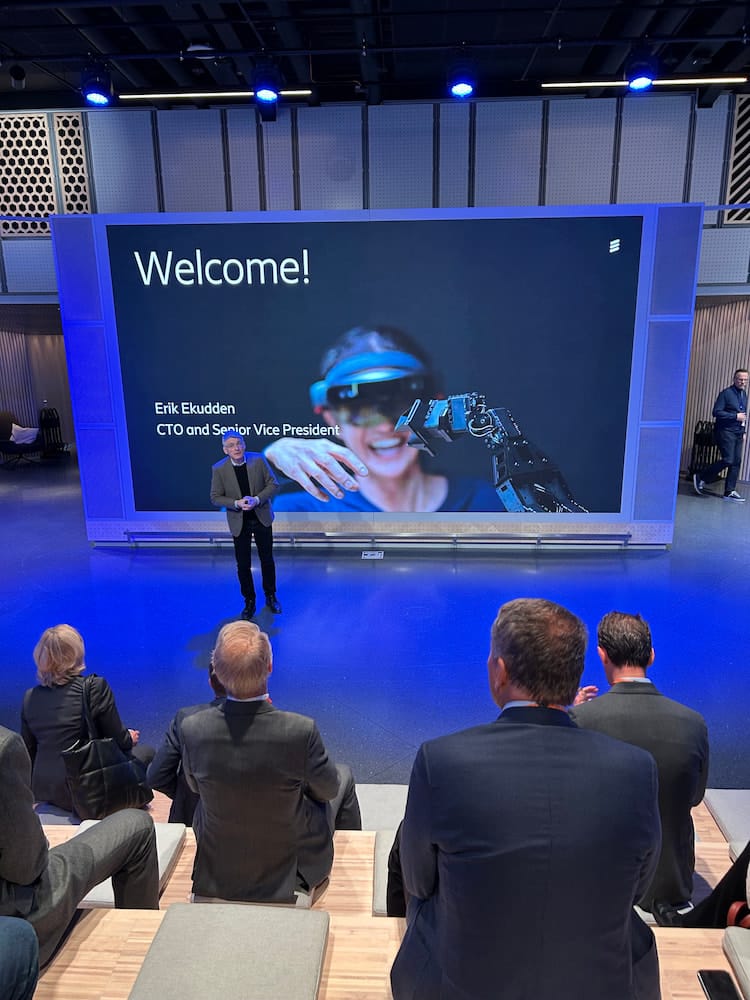
Erik Ekudden reviewed, among other things, the rollout of 5G, where Sweden and Europe lag behind the USA and China.
We also received a tour of Ericsson's visitor center, with old telephones, private 5G networks, and large 5G towers.
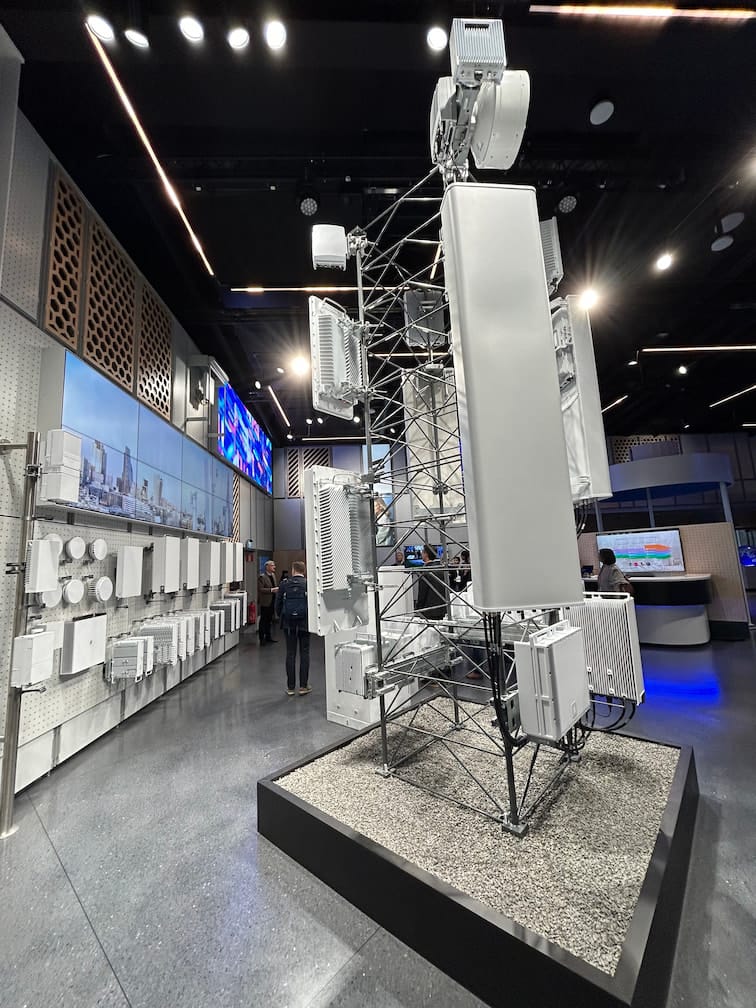
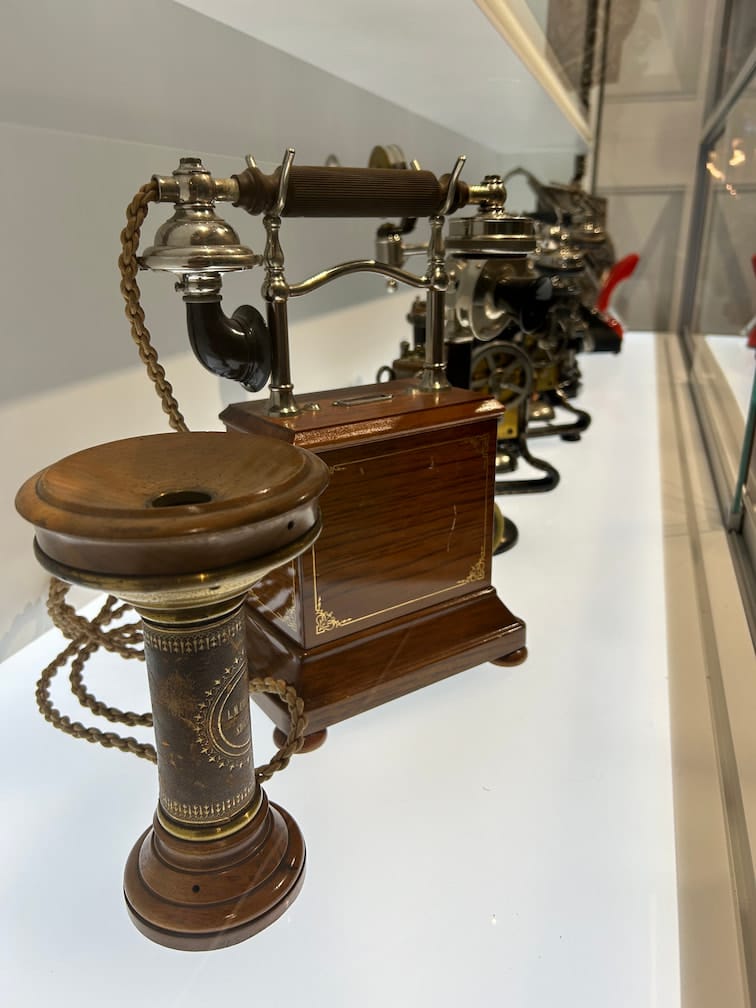
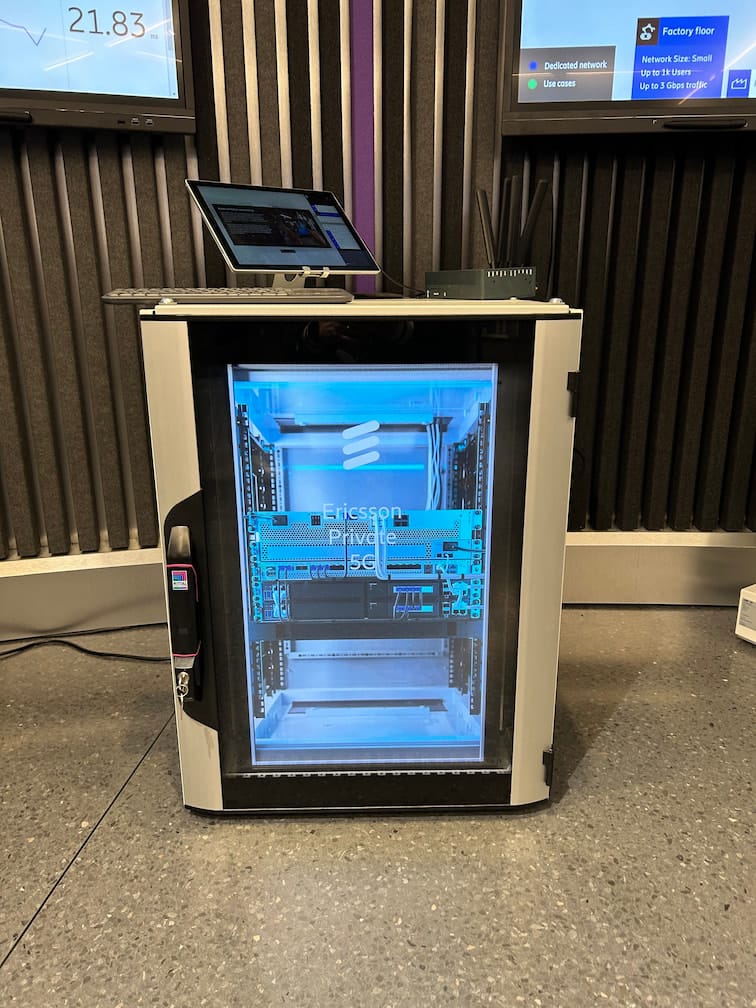
Ericsson also showcased several AI solutions they have, both in the actual towers and internally. Among other things, they had built their own ChatGPT solutions early on, even before ChatGPT was released to the public.
Fish AI
Also present at the meeting were industrial giant ABB and energy company Vattenfall. The latter unveiled an unexpected AI solution: fish recognition.
At hydroelectric dams, it is necessary to monitor that fish can pass the dams in special fish ladders, which is most easily done with cameras and facial recognition, but for fish.
Many ideas
After the morning's presentations, the AI Commission had its own meeting after a salad lunch. Then joined by, among others, Volvo's CEO, Martin Lundstedt, who came directly from a press conference where he announced a Swedish record in dividends to shareholders: four billion dollars.
The meeting was somewhat disorderly, as all members are bubbling with ideas and thoughts. Chairman Carl-Henric Svanberg is keen that it is we as a commission who together shape our proposals. This may sound obvious, but both you and I probably know from experience that sometimes a chairman pretends to be interested in others' opinions but plans to dictate everything themselves. In this case, he shows both in words and action that he expects a joint effort.
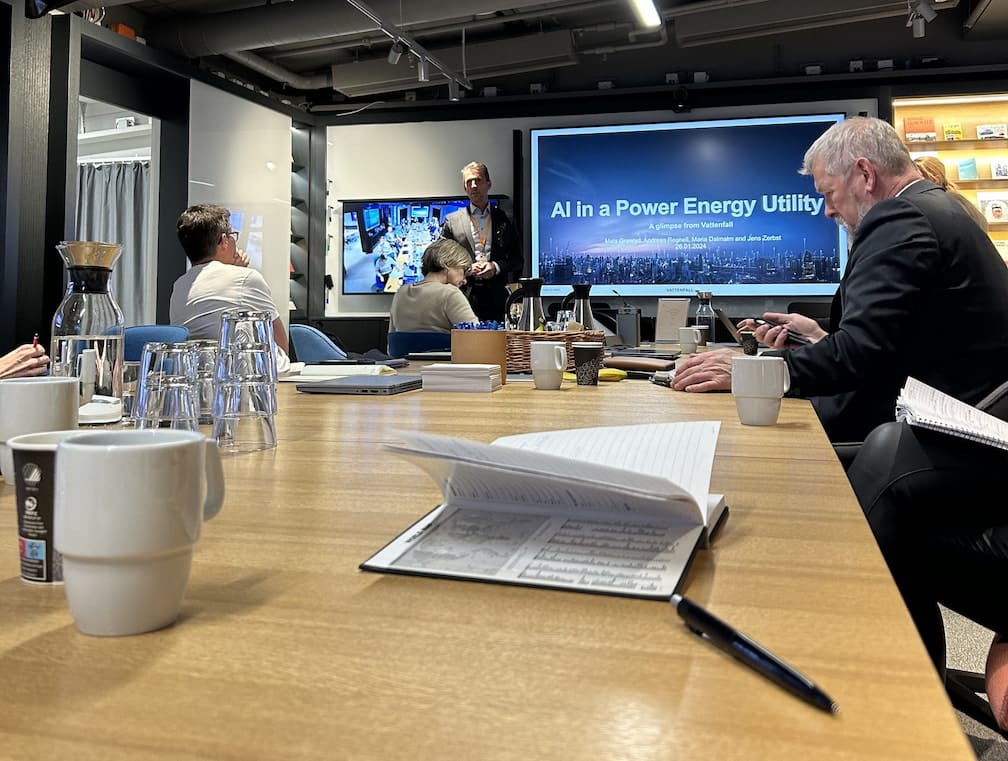
The main mission of the AI Commission from the government is to propose measures that strengthen Swedish competitiveness. The reason we talked to Ericsson, Vattenfall, and ABB is to get a handle on some basic conditions, such as energy supply and the broad digitalization of society.
More specifically, we also talked about Sweden's position within AI. Where are we in the value chain, and what can we lead in?
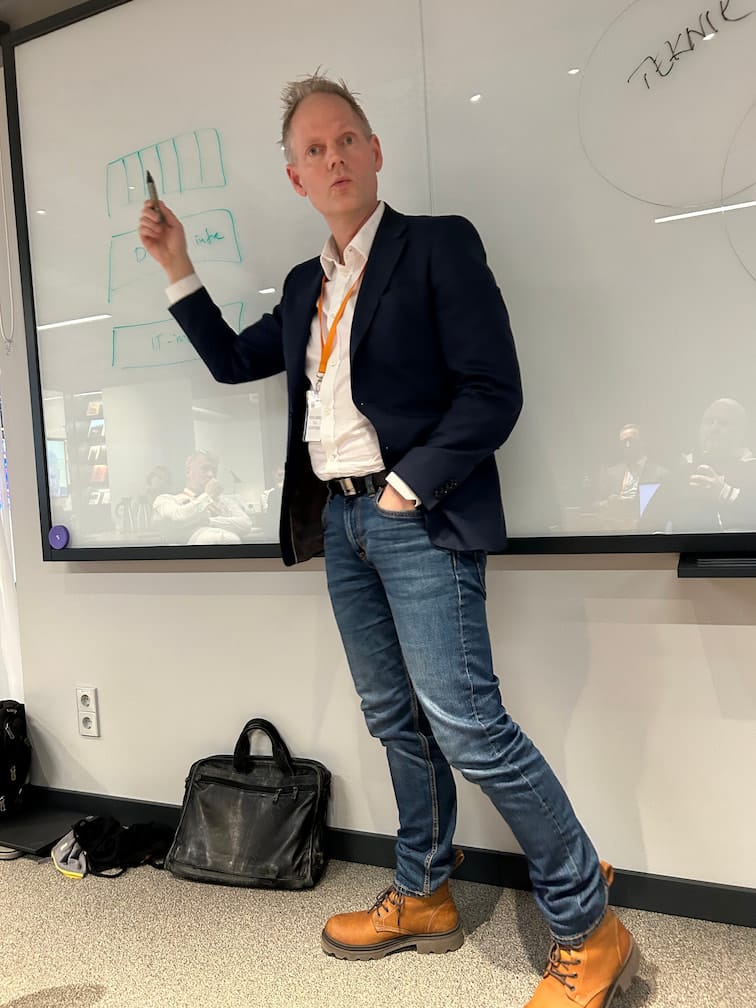
Here are my thoughts that I shared at the meeting:
The opportunity
- In developing AI models, Sweden is not at the forefront, and it is difficult to catch up.
- But when it comes to usage, we have good conditions to be at the forefront if we act now and quickly.
- Generative AI is a new platform that will have the same or greater significance as the internet and the personal computer.
- It is not the technology or its availability that is the bottleneck, but the understanding of how we should use generative AI.
- If Sweden becomes the country in the world that makes this journey the fastest, it will have a significant positive effect on Swedish competitiveness.
- But that is just the first step. The second step is even more interesting. Generative AI unleashes creativity. Dyslexics can write. Tone-deaf individuals can create music.
- When this creativity starts flowing from millions of heads, a large amount of new will be created. What it will be, we do not know, but many will become companies, some of which huge companies. A new Ericsson or Spotify, or why not the world's first billion-dollar company with just one employee.
- If Sweden becomes the country in the world that starts using generative AI the fastest – and best – then a high percentage of all this new will be created here.
Inspired by the IT miracle
We can learn and be inspired by the 90s. Sweden made this journey then, but within IT. Several factors contributed to it, but mainly three:
- A generally positive discussion about IT, spiced with grand visions and evangelists.
- Political will and action (not least thanks to the above point).
- World-leading in the use of IT through the home-PC reform and rapid broadband expansion.
It worked. A number of dot-com companies were started. International media visited Sweden and marveled. A Swedish IT ambassador traveled the world, and embassies organized meetings where the Swedish IT miracle was highlighted.
How do we create an AI miracle?
The proposals must be adapted to our time, but the same logic applies now as then. If Sweden becomes the country with the best AI usage in the world, where the highest proportion of citizens use AI – a centaur society – we can create a Swedish AI miracle.
- Introduce an AI check. Every Swede gets a few hundred kronor a month (deduction, check, or another solution) that can only be spent on ChatGPT, Midjourney, Copilot, Gemini, or some other AI service.
- Set up a digital platform where people can choose between a number of selected AI services. (There can also be introductions to the services.)
- A similar initiative for the public sector.
I have a few more ideas, but my focus is on this AI check. The home-PC reform in the 90s (government subsidy to acquire a home computer) contributed to a million Swedes (over 15% of the population) getting a computer at home. The rapid broadband expansion ensured they had good internet to surf on. The government did not tell them what to do with the computer but trusted their own creativity. It was a brilliant reform and can be repeated in the AI era.
Mathias Sundin
The Angry Optimist
Thanks to those I've been able to bounce ideas off and share your knowledge: Tomas Ohlin, Eva Lindencrona, Christer Sturmark, Jonas Birgersson, Joakim Jardenberg, Christer Andersson, Tom Skalak and Arnold Andersson.
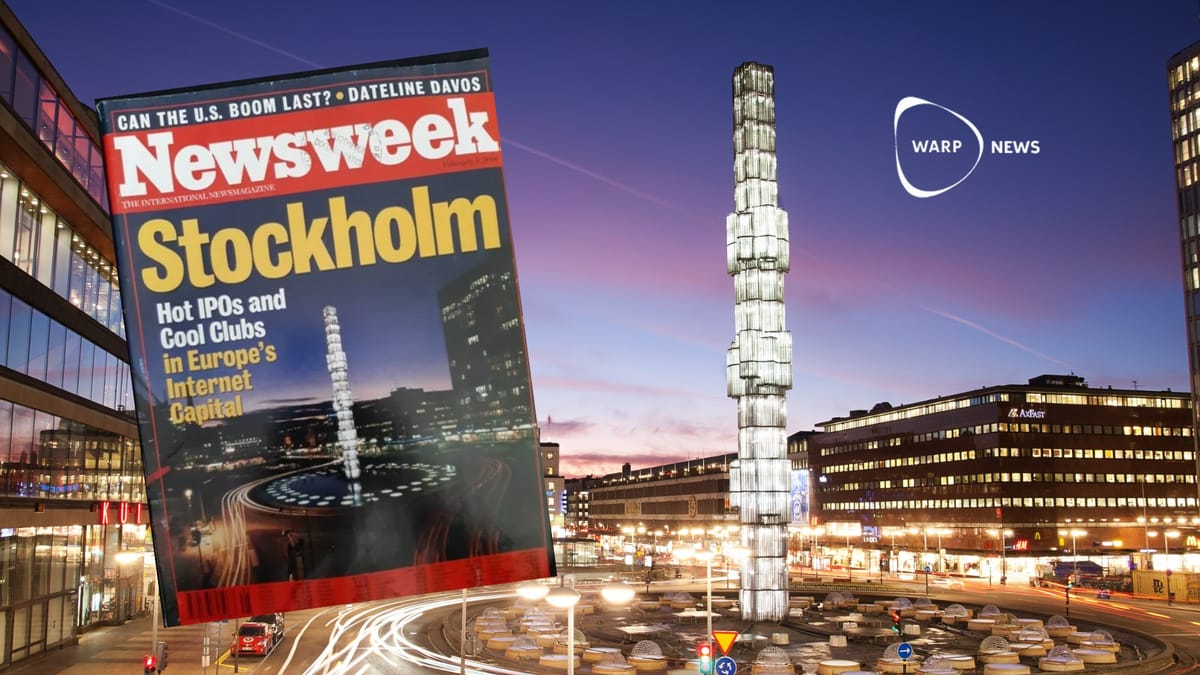
By becoming a premium supporter, you help in the creation and sharing of fact-based optimistic news all over the world.

